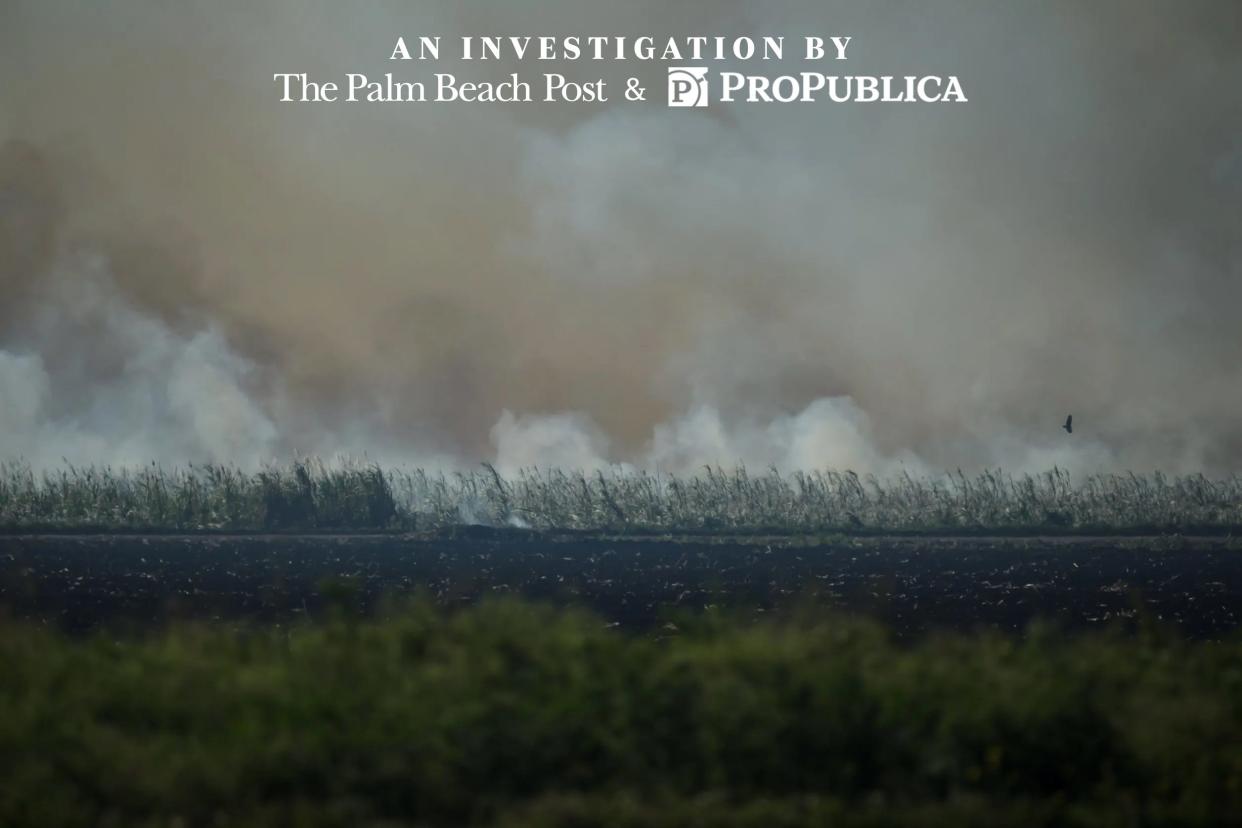ICYMI: The Palm Beach Post a finalist for a 2022 Pulitzer Prize in Local Reporting

ICYMI: The Palm Beach Post is a finalist for a 2022 Pulitzer Prize
This past week, for the first time in the newspaper’s 105-year history, The Palm Beach Post was named a finalist in a story category when the 2022 Pulitzer Prizes in journalism were announced on Monday.
The “Black Snow” project, done in partnership with ProPublica, exposed the lack of quality air monitoring in the Glades region during sugarcane burning. The resulting soot that falls from the sky during this awful harvesting practice — called “black snow” — is being blamed for contributing to health problems by some residents of the impoverished area.
There were some 150 entries in the Local Reporting category. The Post/ProPublica project made it to the top three.
Rather than reinvent the wheel, I’d like to rerun a column that I wrote when we first published the Black Snow project last summer:
"Ask any news consumer what their local news outlets spend most of the resources (time and money) on, and they'll likely answer that it's breaking news.
There is likely some truth to that, given our seeming obsession with all things happening now. But what's also true is that that is only part of the story.
You see, at The Palm Beach Post, we also allocate and spend a great deal of our resources (again, time and money) on enterprise and investigative journalism. We do this because we know that you not only expect us to cover that breaking news story, but to also dig deeper; asking tough questions that will bring some accountability to issues and concerns.
We do this knowing that it may take some time. And yes, money. But we consider this investment part of our charge to try to answer your one nagging question: Why?
Today, we are publishing the latest in a long line of such investigative projects — from "Migration to Misery" to "Line of Fire" to the "Opioid Crisis" — looking into harvest practices in the nation’s largest cane sugar-producing region.
We've known for decades that residents in Florida’s heartland — which includes a huge swath of Palm Beach County — have raised concerns about exposure to pollution from burning cane fields, a cheap technique used to rid the plant of its leaves.
We've known that sugar companies have defended this practice vehemently while state and federal regulators have appeared powerless to stop them.
So more than a year ago, we decided to look into those concerns, concerns that the health of our Glades-area residents was being harmed by potentially high levels of pollutants in the air caused by the outdated practice of burning cane fields to improve harvesting.
And yes, a disproportionate number of these residents affected by this pollution are poor and people of color.
The Post gave over one of its investigative reporters, Lulu Ramadan, to this project for the duration. Working with ProPublica, as well as Post staff photographers and videographers, she logged hundreds of miles to reach hundreds of residents. The Post spent thousands of dollars on public records and specialized equipment, such as air sensors.
The Post made this investment because the community kept asking, "Why?" Why do sugar companies continue this practice when I can see the "black snow" falling from the sky onto my car? Why, with all of the technology at hand, can't they use a cleaner way? Why are our government officials allowing this to happen?
We ask because holding the powerful in our communities accountable by giving voice to the voiceless and disenfranchised is always a worthwhile investment."
This is what we do.
We're proud of our newspaper, and we hope you are too. Because this type of work wouldn't be possible without the support of our subscribers. Check out more of our work from the past week below.
And please, tell a friend. We'll make more.
Rick Christie
Executive Editor
And you can always reach out to me at rchristie@pbpost.com and find me on Twitter at @rchristiepbp. Or send in a news tip to breakingnews@pbpost.com. Subscribe to independent reporting that supports democracy via subscribe.palmbeachpost.com.
This article originally appeared on Palm Beach Post: ICYMI: The Palm Beach Post a finalist for a 2022 Pulitzer Prize`

